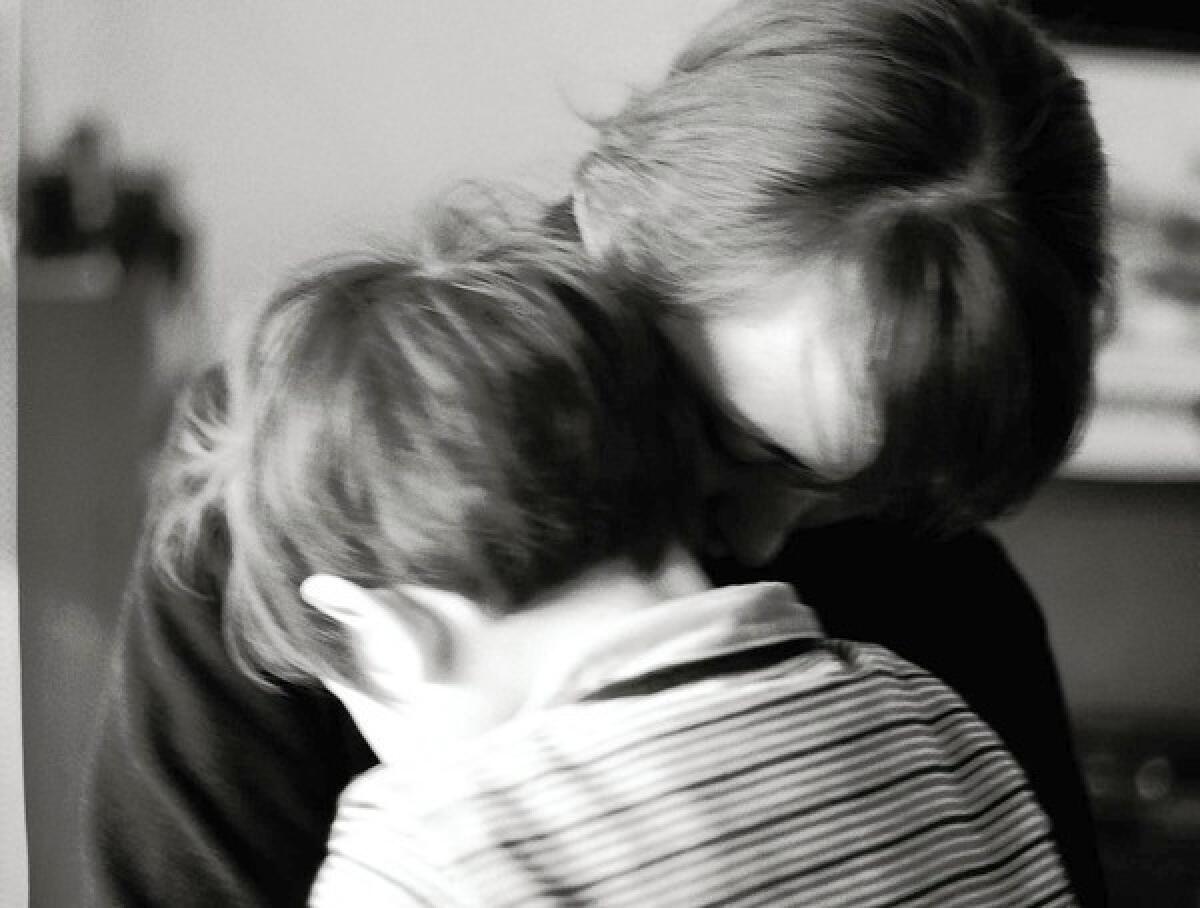Column: Feeling depressed? You’re not alone — and you may want to seek help

- Share via
It’s no exaggeration to say there’s a lot to worry about at the moment. That’s why mental health experts are advising people to pay attention to any feelings of anxiety or depression.
“The outbreak of coronavirus disease 2019 may be stressful for people,” says the U.S. Centers for Disease Control and Prevention. “Fear and anxiety about a disease can be overwhelming, and cause strong emotions in adults and children.
“Coping with stress will make you, the people you care about and your community stronger.”
For many people, though, that may be easier said than done.
Working from home can create feelings of loneliness and isolation. Empty store shelves are deeply distressing. Let’s not even talk about the stock market.
“It will take some time for us to see the long-term mental health effects of this situation, but it has a lot of the ingredients that can affect people’s mental health negatively in a significant way,” said Jutta Joorman, a psychology professor at Yale University.
“What makes me particularly concerned about this particular crisis is the risk of social isolation,” she told me. “Many coping tools include social interactions and support, and it is tricky to have a crisis that necessitates physical distance.”
John Weisz, a psychology professor at Harvard University, said coronavirus-related stress can represent a tipping point for people who already may have been experiencing heightened levels of anxiety.
“Highly anxious people often fear things they don’t fully understand, and strictly avoid situations they believe are dangerous — in part because they are not certain how to evaluate the danger or what behaviors might expose them to risk,” he said.
Depression may carry a stigma in the eyes of some — a sign of weakness or instability. Similarly, some people may shun any discussion of mental health, believing (wrongly) that anxiety or fear requires no additional attention during unusually chaotic periods.
I’ve written about my own issues with depression and the challenge of weaning myself from antidepressants.
A few points right out of the gate. First, there’s nothing strange or unusual about feelings of sadness or helplessness during times of extreme duress. It happens to everyone.
Second, everyone’s experience is unique, and needs to be handled as such. A case of coronavirus blues isn’t necessarily the same as clinical depression. Maybe you want to consult a professional, maybe you don’t. It’s your call.
If you do choose to seek help, it’s not a sign of weakness — just the opposite. Taking the initiative in dealing with such matters requires strength and courage.
Finally, everyone finds his or her own way back into the light. In some cases, that may involve a conversation or two with a therapist. In others, it could involve a pharmaceutical remedy, as it did in my case.
Whatever works. Don’t let anyone else’s experience dictate your own actions.
Fredric Rabinowitz, a psychology professor at the University of Redlands, said the coronavirus pandemic “represents a break in everyday reality which will make people use whatever coping mechanisms have worked in the past.”
“For some, it is to take control,” he said. “For others, it is to protect themselves at all costs.”
For those people who are simply overwhelmed, the only solution may be to “avoid dealing with the reality of the situation,” Rabinowitz said.
The CDC says people who may be most susceptible to coronavirus stress include those at higher risk of infection, such as older folks and those with chronic diseases.
Kids and teens may be prone to confusion at times like these and require extra support and guidance, the agency says.
Moreover, a fast-moving illness can exacerbate challenges for anyone with a preexisting mental health condition or a problem with substance abuse.
Here’s what to watch for, according to the CDC:
- Changes in sleep or eating patterns.
- Difficulty sleeping or concentrating.
- Worsening chronic health problems.
- Increased use of alcohol, tobacco or other drugs.
Yale’s Joorman advised sticking to daily routines and taking comfort in normal behavior.
“Get up when you usually get up, even if you now work from home,” she said. “Make a daily plan for the children, and maybe tackle some of the tasks you usually put off, such as cleaning the house, landscaping or cleaning out the garage. Take a walk, exercise, enjoy some down time.”
Perhaps most important, don’t obsess about keeping up with every new coronavirus development. “It is important to unplug once in a while,” Joorman observed.
The CDC is advising the same: “Take breaks from watching, reading or listening to news stories, including social media. Hearing about the pandemic repeatedly can be upsetting.”
It also says people should try to exercise, stretch or meditate — whatever helps you find your happy place.
“Talk with people you trust about your concerns and how you are feeling,” the CDC says.
We’ve heard from President Trump and others that this will eventually pass, and that’s true. It may seem as if there’s nothing but storm clouds on the horizon, but the sun does always return.
“Be mindful of what is happening and realize that everyone is being impacted, not just you,” said Rabinowitz at the University of Redlands. “This means that despite the calls for social distancing, we are actually all in this together.”
And as you come to terms with the feelings you’re experiencing, perhaps for the first time, spare a thought for those who have long dealt with such weighty emotions.
“Some of what we are experiencing now, during this very unusual set or circumstances, resembles what people with severe anxiety experience on a routine basis even when there is no coronavirus,” observed Harvard’s Weisz.
Even without a pandemic, we are indeed all in this together.
More to Read
Inside the business of entertainment
The Wide Shot brings you news, analysis and insights on everything from streaming wars to production — and what it all means for the future.
You may occasionally receive promotional content from the Los Angeles Times.











